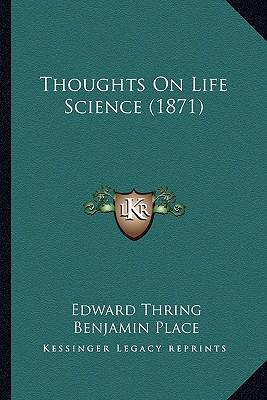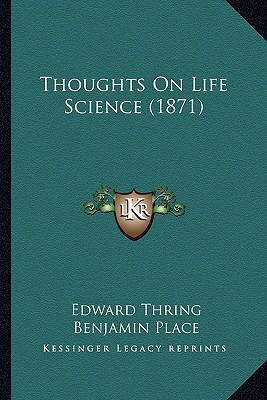
- Afhalen na 1 uur in een winkel met voorraad
- Gratis thuislevering in België vanaf € 30
- Ruim aanbod met 7 miljoen producten
- Afhalen na 1 uur in een winkel met voorraad
- Gratis thuislevering in België vanaf € 30
- Ruim aanbod met 7 miljoen producten
Zoeken
€ 44,95
+ 89 punten
Uitvoering
Omschrijving
Thoughts On Life Science is a book written by Edward Thring and published in 1871. The book is a collection of essays and reflections on various topics related to life science, including biology, physiology, and anatomy. Thring, who was a renowned educator and headmaster of Uppingham School in England, explores the principles and theories of life science in a clear and accessible manner. He discusses topics such as the structure and functions of cells, the nervous system, and the circulatory system, as well as the relationship between life and matter. Thring's writing is characterized by his deep curiosity and his ability to explain complex scientific concepts in a way that is understandable to the layperson. The book is a valuable resource for anyone interested in the history of life science and its development in the 19th century.This scarce antiquarian book is a facsimile reprint of the old original and may contain some imperfections such as library marks and notations. Because we believe this work is culturally important, we have made it available as part of our commitment for protecting, preserving, and promoting the world's literature in affordable, high quality, modern editions, that are true to their original work.
Specificaties
Betrokkenen
- Auteur(s):
- Uitgeverij:
Inhoud
- Aantal bladzijden:
- 334
- Taal:
- Engels
Eigenschappen
- Productcode (EAN):
- 9781166316013
- Verschijningsdatum:
- 10/09/2010
- Uitvoering:
- Paperback
- Formaat:
- Trade paperback (VS)
- Afmetingen:
- 152 mm x 229 mm
- Gewicht:
- 449 g

Alleen bij Standaard Boekhandel
+ 89 punten op je klantenkaart van Standaard Boekhandel
Beoordelingen
We publiceren alleen reviews die voldoen aan de voorwaarden voor reviews. Bekijk onze voorwaarden voor reviews.











